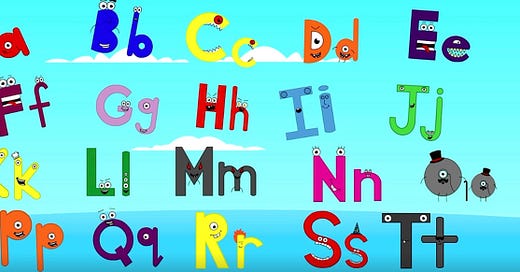Lagging literacy by Oregon grade school students is unacceptable
Stop squabbling, follow the science and ensure Oregon’s children learn how to read and the joy of reading
Most humans are born with the senses of sight, smell, touch, taste and feel. But humans have to learn to read. Not learning to read can be the biggest handicap anyone faces in life.
That’s why Oregon’s lagging reading literacy rates are so alarming. It’s why many Oregonians are frustrated with endless debates over how to teach reading. For me, the issue is personal.
Since I was in grade school in the 1950s, there have been arguments over sight learning versus phonics. I had some of both. As a non-educator, I can’t say what reading instructional strategy is best. Phonics enabled me to sound out words. Sight learning helped me recognize word patterns. My sixth-grade Spanish class helped me decipher English grammar and understand infinitives. All were useful, practical decoding skills.
The real difference for me was constant encouragement by my teachers and my parents to read – schoolbooks, comic books, Hardy Boy mysteries, the Bible or the back of baseball trading cards. Learning to read planted the seeds in me to love words and learn how to use them. By the time I was 10, I was writing and editing my own neighborhood newspaper. Learning to read propelled me on a path to love words, how they were spelled, what they sounded like and what they meant. That love of words was the foundation of learning to think.
Reading and Critical Thinking
I didn’t consciously link reading with critical thinking until my senior-year advanced history class. My teacher, who also was my baseball coach, made me read and think critically about President Harry S. Truman, not a popular figure in my conservative household. In addition to learning about Truman’s fateful decisions to drop nuclear bombs on Japan, integrate the U.S. military and recognize the State of Israel, I learned how he learned – by reading a lot.
Later, I discovered Truman checked out and read more books from the Library of Congress than any of his predecessors or successors. When North Korea invaded South Korea in 1950, Truman was the most knowledgeable person in the U. S. government and military on the terrain and history of the Korean Peninsula.
In college, I became enthralled with the power of words to convey meaning, context and point of view. As an English literature major, I learned how English and storytelling evolved from Beowulf through Canterbury Tales, from Shakespeare’s plays to Charles Dickens’ novels. I found myself drawn to philosophers who used words to explore the universe of meaning. As a college student newspaper editor in the late 1960s, I saw the power of words in protests against a war and in support of civil rights.
My professional career, which started in journalism, continued as a congressional aide in Washington, D.C., and settled in as a professional advocate and strategic communications counselor, has centered on using words to explain and persuade. That wouldn’t have been possible if I never learned to read and love words.
Reading Widens a Person’s Worldview
The value of reading extends to all walks and ways of life. A person’s view of the world is shaped by what they know, informed by what they read. A person’s worldview is truncated by what they don’t know by failing to read.
Reflecting back, I appreciate how important it was to learn to read in grade school and discover the pleasure of written words in books, songs, poems, newspapers and sermons and the practical benefits of reading job descriptions, assembly directions, travel guides and training manuals. The generational loss of people with limited reading skills is for me sickening.
Instead of arguing over who should decide how reading is taught to young children, my plea is to settle on evidence-based instructional strategies. Varying strategies will certainly be needed for students with different capacities or limitations. But absolutely no child should be left behind when it comes to reading, and certainly not because adults couldn’t agree on how to teach them to read.
Early Literacy Success Initiative
It's encouraging Governor Kotek supports a $100 million investment in the Early Literacy Success Initiative (Senate Bill 1045), which aims to get Oregon school districts on track to improve reading instruction as early as next school year. She wants primary grade teachers to use strategies that research shows are effective. “We are going to make sure the science of reading guides what districts do.”
This will only work if we collectively make it work. There will be resistance by individual school districts and schoolteachers to mandated learning strategies. Respectfully, that resistance is unwarranted when only 39 percent of Oregon third graders and 21 percent of Latino and Black third graders are reading at the level expected for their grade. We should be ashamed.
This is not a time to squabble over turf. It is time to teach every kid the skill and joy of reading. Their future depends on it. And so does ours.
Gary Conkling has been a newsman, congressional aide and public affairs professional for more than 50 years.





